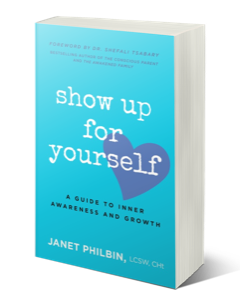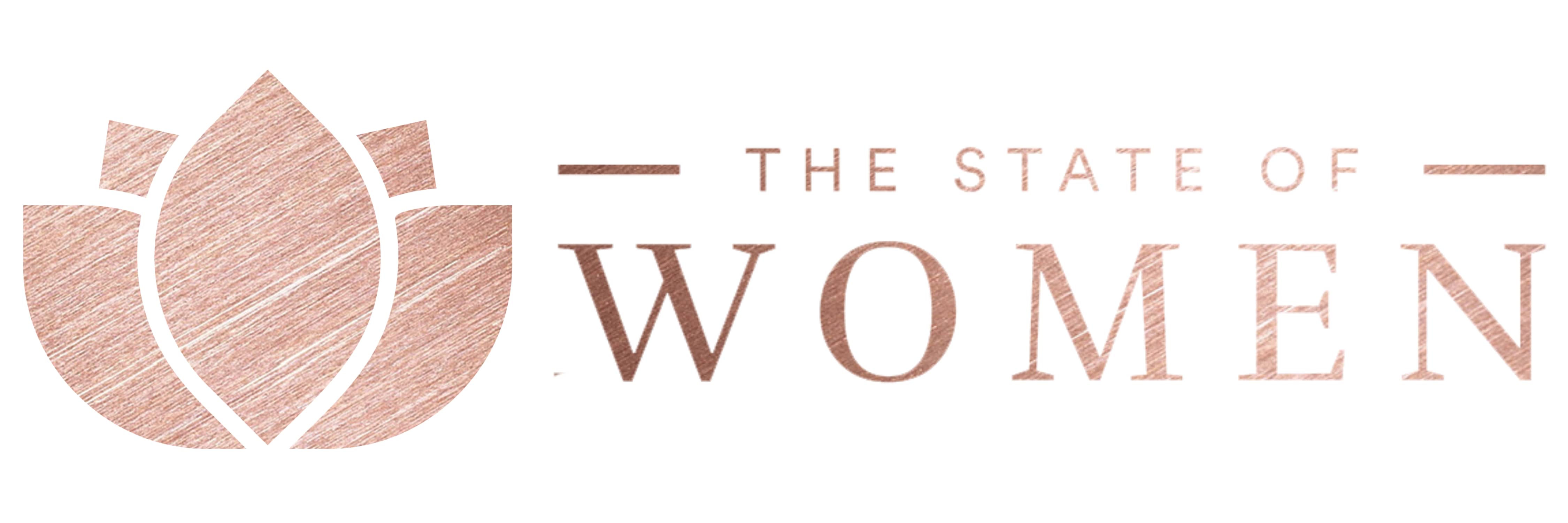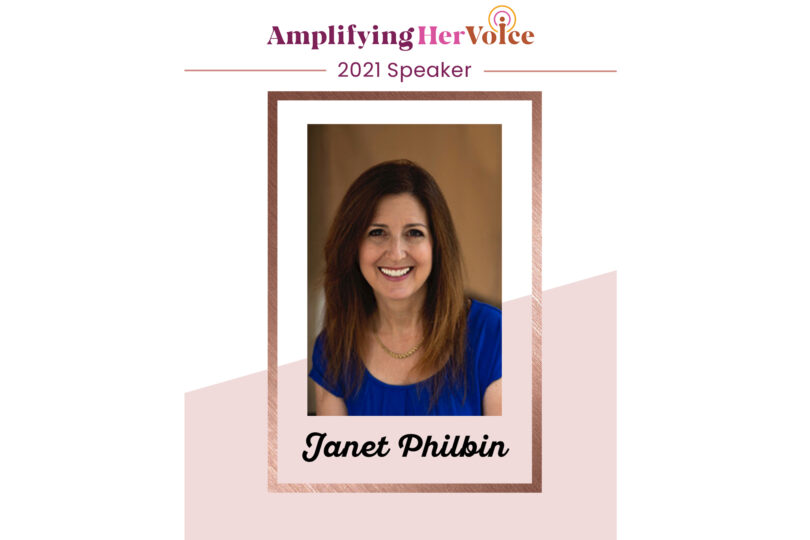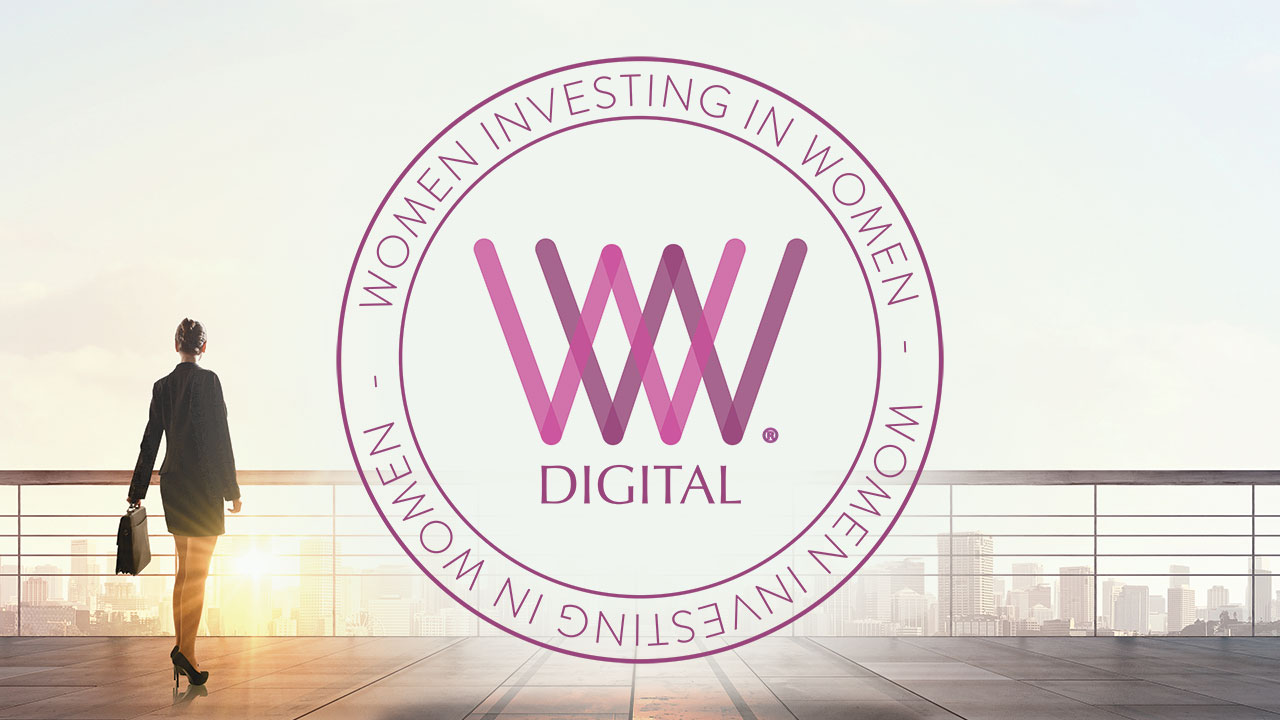The next speaker from the Amplifying Her Voice “In Moms We Trust” Summit we’d like you to meet is Janet Philbin, who spoke on our “Coping With Trauma and Stress” panel.
Philbin; a licensed clinical social worker, hypnotherapist, and conscious parenting coach; helps adults heal from the emotional pain and trauma of their pasts. She has spent the past 21 years helping people emotional wounds and change their lives, and is the author of Show Up For Yourself: A Guide to Inner Awareness and Growth, an Amazon bestseller offering a framework for emotional healing.
In our Q&A, Philbin discusses how showing up for ourselves can help us be there for others, the new and increased challenges faced by women and mothers, the importance of compassion and following your own path, the example we set for our children when we show up for ourselves, and more.
What inspired you to join Amplifying Her Voice for Mother’s Day?
I think it is important for mothers and women to understand themselves. I want to offer support and resources to help moms feel connected to themselves.
What most drives and motivates you each day?
What drives day motivates me each day is always stretching to know myself better and to continue on my healing journey. When I am working on myself I have the internal resources to be there for others.
Who is your role model, and why?
My role model is my grandfather. He was a Holocaust survivor. He taught me the value of family, the value of consistency, the value of following through, and honoring your word.
What cause, company, group, or movement are you a part of that you would like to share with us?
I am passionate about sharing and teaching conscious parenting. We can help children of today by helping their parents heal.
What do you think are some of the most pressing issues facing moms, families, and caregivers today?
I think moms are juggling so much. Now with the challenges of COVID, stress is higher. The pressures of online school, working, and trying to find balance each day are causing many people to reach their emotional limit in their ability to cope effectively. Moms need even more support as they continue to traverse this new territory.
How do you think issues like poverty, violence, racism, oppression, and inequality intersect with motherhood and with being a woman?
I think women have always been the ones fighting and advocating for their children. When a woman is also struggling with poverty, violence, racism, oppression and inequality then the challenges to survive and raise their children are magnified. Many women are living with more than one of these issues at a time. They are survivors. As a woman you are already faced with inequity so adding any other trauma creates even more of a barrier for women to be empowered to effect change in their lives.
How do you feel being a mother is different now than it was in the past? What do you hope will change in the future?
Mothers have always had to juggle it all. Now I think mothers have to juggle even more. Children have instant access to the world, good and bad, through the internet. It is becoming harder for mothers to protect their children from bullies, predators, and other harmful influences. I think this has increased stress and anxiety tremendously and mothers need more help and support in managing these stressors. I hope in the future mothers will have better access to support and mental health resources. I also hope to see more inclusion and more diversity in communities and more acceptance of one another without bias.
What is the best advice you’ve received?
My mother always said to me: It does not matter what you do when you grow up; just find a way to support yourself that also makes you happy.
What is something you would like to share with the next generation?
Follow your own path and do not let others influence who you are and how you show up in the world. Be the unique person you arrived here on Earth to be. Your special gifts are valued and needed.
Who inspired you as a child or young person, and how do you work to inspire the next generation now?
Growing up I read all of Judy Blume’s books. Reading those novels helped me begin to understand myself and the world around me. The characters brought to life for me real struggles. From a young age I always wanted to help people and Judy Blume and her characters began that curiosity in me. She helped me to understand another and learn to have compassion for someone who is struggling.
What do you think is the most important thing for women to keep in mind in terms of caring for themselves?
 You are sacred. Treat yourself as a sacred woman. You have to take care of your emotional and physical needs first. If you neglect yourself you can not fully be there for your children. Take care of you, show up for you and then you will have the ability to be there for others.
You are sacred. Treat yourself as a sacred woman. You have to take care of your emotional and physical needs first. If you neglect yourself you can not fully be there for your children. Take care of you, show up for you and then you will have the ability to be there for others.
What are your views on “work-life balance” for women? How should women handle the obligations of both professional and family life, and what messages does it send to the next generation?
I have always felt it was important to maintain my professional life while my children were growing up. I worked part-time so I was able to be there for them when they needed me but also have something for myself, my career. Whatever your interest or passion is, do not give it up because you have children. Find a way to make time for what is important for you in your career or life. When you model that what you want for you is important and valued, your children learn to value what they want for themselves.
What advice would you like to share with girls and women looking to achieve their dreams and lift up one another?
Put yourself first. Do not compare yourself to others. Follow your passion and your dreams. Find other women who are passionate about the same things and support one another.
”
We’re so grateful to Janet Philbin—and all the amazing women who spoke at our summit—for their insights, time, wisdom, and voices. Keep following us to meet and learn more from other remarkable speakers from our summit and from leading women around the world.



